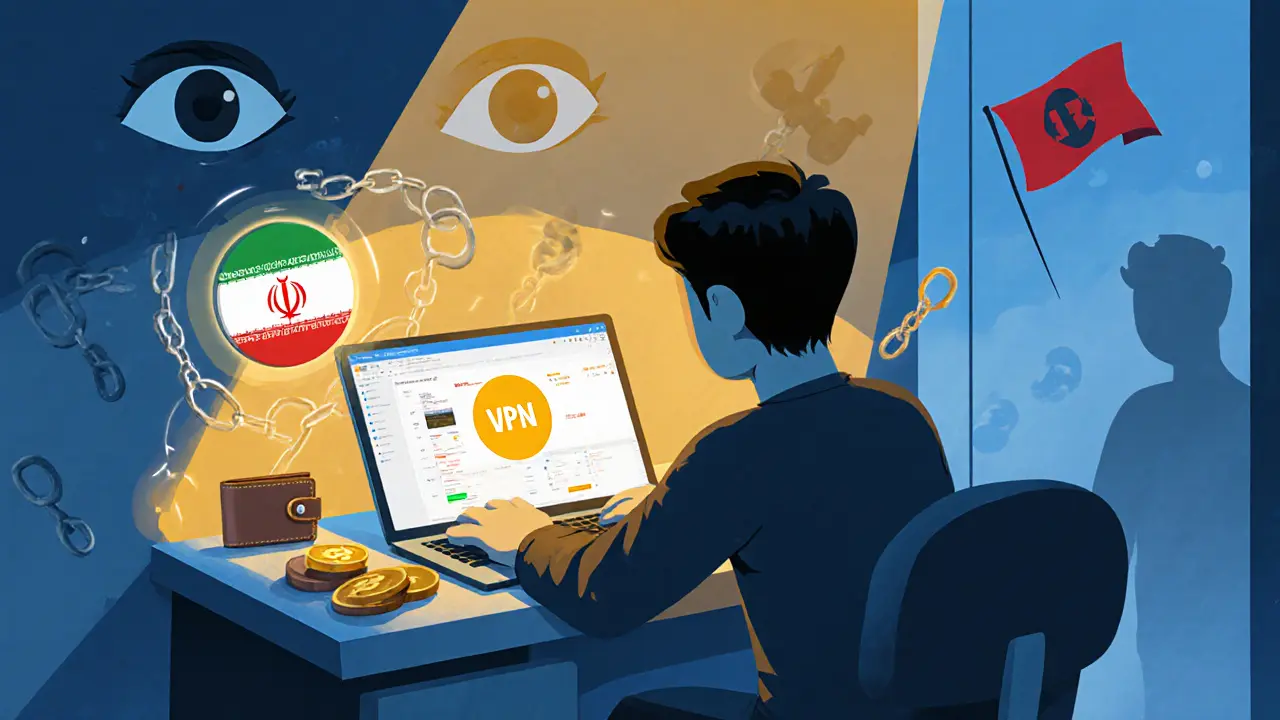Decentralized Exchange Iran: What You Need to Know About Crypto Trading Under Restrictions
When you're in Iran and looking for a decentralized exchange, a peer-to-peer crypto trading platform that doesn’t require a central authority. Also known as a DEX, it’s often the only way to trade crypto without relying on banks or government-approved services. With international sanctions limiting access to traditional exchanges like Binance or Coinbase, Iranians turn to DEXs to swap tokens, store value, and protect savings from inflation. But not all DEXs are safe—or even functional.
Many DEXs built for Ethereum or BSC don’t work well in Iran due to slow connections, high gas fees, or blocks from local ISPs. Some platforms, like SkullSwap, a nearly inactive Fantom-based DEX with no audits or community, are outright risky. Others, like STON.fi v2, a fast, low-fee exchange built for the TON blockchain, are better suited for users needing speed and low costs. And then there’s the rise of privacy coins, cryptocurrencies like Monero and Zcash that hide transaction details—critical for Iranians who need to protect their financial activity from surveillance.
Using a DEX in Iran isn’t just about picking the right platform. It’s about understanding what’s legal, what’s monitored, and what could get you flagged. The U.S. and other governments have seized crypto assets in countries like Syria and Cuba, and Iran faces similar pressure. Even if a DEX works today, it could vanish tomorrow—especially if it’s unregulated or has no team behind it. That’s why users in Iran often combine DEXs with privacy coins, hardware wallets, and peer-to-peer networks to stay in control.
What you’ll find below are real reviews of exchanges and tokens that have been tested—or rejected—by users in high-risk regions. Some platforms look promising but turn out to be empty shells. Others, like STON.fi v2, offer real utility but only for specific blockchains. And then there are the scams: fake airdrops, zero-liquidity tokens, and platforms that disappear after collecting user funds. This collection cuts through the noise. You won’t find fluff. Just facts about what’s working, what’s dangerous, and what’s completely gone.
DEX Access for Iranian Citizens: How to Use Decentralized Exchanges Amid Restrictions
Iranian citizens are turning to decentralized exchanges to bypass government restrictions and sanctions. Learn how DEXs like QuickSwap on Polygon, combined with DAI and VPNs, are becoming the only reliable way to trade crypto safely in Iran.
